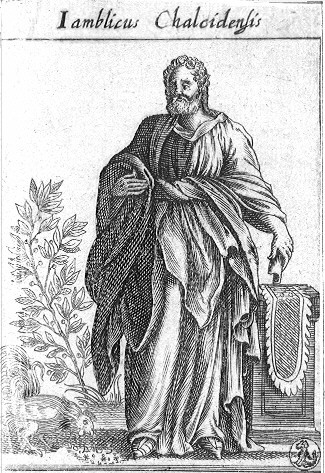
I have two reasons for writing down my current account of my avocational "production principles." The first is that, being the first month of the year, it just seemed like an appropriate time to "officially" get these out of my mind and out there to read. The second, and probably most important, is that I've felt some unnecessary pressure with regards to my avocation recently. I've felt unproductive. And I have been disappointed in what I have made. I realized, however, that I was comparing myself to professionals and folks with more training in music, production and the arts. I had to remember that this is my avocation - not my vocation. So it is okay for me to expect amateur results from myself. So, here goes.
Keep joy central
Joy (or, vulgarly, "fun"), after all, is the whole point of pursuing anything avocationally. So this is my whole purpose in returning to music and (sacred) art as a "hobby" (what a horrible word).
- use presets shamelessly
- when frustrated, always ask myself: "why am I doing this?"
It is okay to use presets, especially in my DAW (Digital Audio Workstation, which is to say, musical production software). I am not an engineer or producer. The presets do what they are supposed to do. I will not make something stellar, or "unique." But I will make something that sounds acceptable and allows me, in some way, some artistic expression. Good enough (see the principle "No perfectionism," below).
Minimalism
A general aesthetic philosophy of minimalism needs to be the main principle driving my approach to composition, whether musical or iconographical (or architectural). And this for several reasons, both philosophical and practical. Philosophically, I just have an appreciation for and a loose commitment to (sacred) minimalism. I will write a commentary or theoria post on why some other time. Practically, these artistic pursuits are not my vocation. I will only stress myself out expecting professional or virtuoso results from my amateur and self-trained capacity, skill and time.
- simplicity
- unimportant / non-serious
- limits = paramaters for creativity (a good thing)
My old roommate, Tommy Falby, taught me the importance of the word "non-serious." Brian Eno says, "regard your limitations as secret strengths. Or as constraints that you can make use of." The very fact that he ends his sentence with a preposition is a case in point.
No perfectionism
The principle of "non-perfection," literally "in-completion," is obviously related to and a corollary of the previous two principles of "keeping joy central," and "minimalism." "No perfection" is my principle for recording, and for using and knowing my DAW for audio capture in general.
- record without fear
- snappy / quick
- take the 1st take
- "mistakes" = "hidden" intentions
Again, Eno: "honor thy mistakes as hidden intentions." That is, when it generates something new and unexpected. Not simply because you've played off beat or you've screwed up the sound irreconcilably!
Explore sounds and timbre
The exploration of sound generation and timbre manipulation is the goal behind any creative use of synthesis in general. So this is nothing too profound. Expect for one thing. It is amazing, as an amateur synthesist, how often I will forget this. I forget the central joy of exploration and go for perfection, where perfection is understood as finality. It is amazing how often I will get stuck with a crappy sound because I keep trying to get it ready to "save" as a preset. Now, this is in no contrast to "use presets," above, under "keep joy central." No, I use presets in areas I don't care or haven't had time to learn, e.g. setting up a track to record vocals. Logic Express sets it up for me good enough for now. No, I mean presets with regards to synthesizers. And even there it is OKAY. So long as I remember two things:
- play with synthesizer presets shamelessly and without fear of "loosing it"
- don't leave my prophet 600's knobs in the same place between two sessions
In general, I really don't save presets. I treat my synthesizers as if they don't have memory. But that freaks me out when I like a sound. I have to kiss them goodbye and let them go.
Best quality gear (that is moderately priced)
Clearly, this principle is about gear acquisition and the avoidance of "gear lust."
- analog synthesis (in the main)
- digital control (sequencing, arpeggiating) and capture (DAW)
- not modular
- not "better," only "different"
Thanks for reading the post. If anybody reads this out there and likes it or has anything to add or suggest, let me know and please comment. Other musicians, what do you think? If you are professional or otherwise virtuoso, what do you think of these as principles for a non-virtuoso amateur? Thanks!

